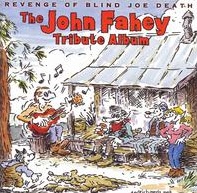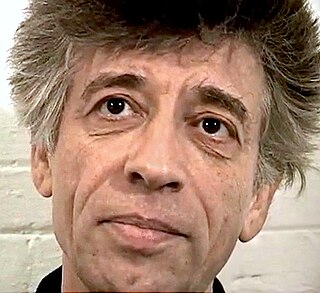Related Research Articles

An album is a collection of audio recordings issued on a medium such as compact disc (CD), vinyl (record), audio tape, or digital. Albums of recorded sound were developed in the early 20th century as individual 78 rpm records (78s) collected in a bound book resembling a photo album; this format evolved after 1948 into single vinyl long-playing (LP) records played at 33+1⁄3 rpm.

The Little Band scene was an experimental post-punk scene which flourished in Melbourne, Victoria, Australia from late 1978 until early 1981. Instigated by groups Primitive Calculators and Whirlywhirld, this scene was concentrated in the inner suburbs of Fitzroy and St Kilda, and involved many short-lived bands that played live only once or twice before changing names and swapping members.

Michael Sheridan is an Australian guitarist. Having played and recorded with an array of artists his versatility in original music spans the styles of rock, jazz/punk, industrial, metal, and sonic art including glitch & noise. He has released solo works such as Scaleshack,Digital Jamming and collaborations with Nicholas Littlemore and associates. He has been a member of several bands since 1975 including No (1987–1989) with Ollie Olsen and Marie Hoy, which were described as "One of Australias most compelling stage acts incorporating speed metal, hip hop and electro funk". In 1989 he followed Olsen to join Max Q with Michael Hutchence of INXS on vocals.
Julian Knowles is an Australian composer and performer, specialising in new and emerging technologies. His creative work spans the fields of composition for theatre, dance, film and television, electronic music, sound and new media arts, popular music and record production. Since the mid-1980s, he has established himself as a prominent artist in the area of electronic and new music, achieving significant critical recognition for his performances and recordings.
Ernie Althoff is an Australian musician, composer, instrument builder, and visual artist. He was born in Mildura, Victoria in 1950.
Merzbox is a box set compilation by the Japanese noise musician Merzbow. It consists of 50 CDs spanning Merzbow's career from 1979 to 1997. 30 discs are taken from long out of print releases, while 20 are composed mainly of unreleased material. The box also contains two CD-ROMs, six CD-sized round cards, six round stickers, a poster, a black long-sleeve T-shirt, a medallion, and the Merzbook, all packaged together in a "fetish" black rubber box. It is limited to 1000 numbered copies. A Merzbox Sampler was released in 1997.

Jonathan Anthony Rose is an Australian violinist, cellist, composer, and multimedia artist. Rose's work is centered in the experimental music known as free improvisation, where he has created large environmental multimedia works, built experimental musical instruments, and improvised violin concertos with accompanying orchestra. He has been described by Tony Mitchell as "undoubtedly the most exploratory, imaginative and iconoclastic violin player who has lived in Australia".

The Revenge of Blind Joe Death: The John Fahey Tribute Album is a tribute CD to guitarist John Fahey released in 2006 by Takoma Records.

Chris Mann was an Australian composer, poet and performer specializing in the emerging field of compositional linguistics, coined by Kenneth Gaburo and described by Mann as "the mechanism whereby you understand what I'm saying better than I do". He was, in the last 2 decades of his life, based in New York City.
Amanda Stewart is a contemporary Australian poet and sound/performance artist.
Ross Bolleter is a composer and musician whose work is focused on ruined pianos. His recordings are available on Thödol Music, France; Emanem (London); Pogus ; New Albion and Tall Poppies (Sydney), as well as on his WARPS label.
Scattered Order are an Australian post punk band, which started as an experimental rock trio. They were formed in 1979 by founding mainstay Mitch Jones on vocals, guitar and bass guitar and Michael Tee on guitar and synths. Their line up changed often through the 1980s and 1990s. In late 1983 Drusilla Johnson joined on synthesiser and vocals – Johnson and Jones later married. The band went on hiatus from 2000–2011, reforming with a line-up featuring Jones, Tee and Shane Fahey from Makers of the Dead Travel Fast.

Merzbow is a Japanese noise project started in 1979 by Masami Akita, best known for a style of harsh noise music. Since 1980, Akita has released over 500 recordings and collaborated with numerous artists.

Warren John Fahey AM is an Australian folklore collector, cultural historian, author, actor, broadcaster, record and concert producer, visual artist, songwriter, and performer of Australian traditional and related historical music. He is the founder of Folkways Music (1973), Larrikin Records (1974) and a folk music ensemble, the Larrikins (1975).

The New Possibility: John Fahey's Guitar Soli Christmas Album is a 1968 album by American folk musician John Fahey. It is a collection of solo-guitar arrangements of familiar Christmas songs and has been Fahey's best selling recording, remaining in print since it was first released. The album is especially noteworthy since holiday music had never before been played in Fahey's acoustic-steel string blues guitar style.

The Epiphany of Glenn Jones is an album by American fingerstyle guitarist and composer John Fahey and the alternative rock/post-rock band Cul de Sac, released in 1997.
John Thomas Blades was an Australian experimental music artist and member of The Loop Orchestra; he also worked as a radio broadcaster and documentary maker, and as a civil engineer. In 1982 he was diagnosed with multiple sclerosis and used a wheelchair from 1993. In 2010, his radio documentary, The Too Hard Basket, won the Walkley Award for 'Social Equity Journalism – All Media', and the 'Radio Documentary of the Year Award' from the Asia-Pacific Broadcasting Union. Blades died on 25 November 2011 after complications from cancer therapy.

Stevie Wishart is a composer, improviser, and performer on the hurdy-gurdy and violin. Mainly involved in contemporary music, she has also had a career in early music and has edited and recorded the complete works of Saint Hildegard of Bingen, as well as performing music from the repertoire of the medieval troubadours, trouvères and the Cantigas de Santa Maria, with her ensemble Sinfonye.
Jim Denley is one of Australia's foremost improvisers of new music known for his improvisations on wind instruments and electronics. His radio work Collaborations, produced by ABC Radio National radio won the 1989 Prix Italia for radio production. He was a member of the group Machine for Making Sense with Rik Rue, Amanda Stewart, Chris Mann and Stevie Wishart and the medieval music group Sinfonye, led by Stevie Wishart, in which he played frame drums, including the square medieval pandeiro.
The Clifton Hill Community Music Centre (CHCMC), also known as the Organ Factory, was an artist-run music and performance art space in Clifton Hill, a suburb of Melbourne, Victoria, Australia. Located in a 19th-century factory used to construct the grand organ in the Melbourne Town Hall, it was co-founded in 1976 by composers Warren Burt and Ron Nagorcka, and ran concerts on a near-weekly basis until 1983. It closed the following year.
References
- 1 2 3 Jon Rose and contributors, "Rik Rue, Sound Collagist" http://www.realtime.org.au/rik-rue-sound-collagist/, retrieved 14 June 2017
- ↑ Warren Burt, "Some Musical and Sociological Aspects of Australian Experimental Music : Feature Article: Australian Music Centre". www.australianmusiccentre.com.au.
- ↑ Shannon O’Neill, "Copyright Doesn’t Mean Shit to Me: sampling and appropriation in Australian Experimental Music and Sound Art", in Gail Priest (ed), 'Experimental Music: Audio Explorations in Australia', UNSW Press, Sydney 2009, ISBN 978-1-921410-07-9
- 1 2 3 4 5 6 7 8 John Jenkins, 22 Contemporary Australian Composers, NMA Publications, Brunswick, Australia, 1988
- ↑ Rose, Jon; Rose, Performer.), Jo; Kelly, Performer.), Pete; Reid, Performer.), Ro; Rue, Performer.), Ri; Burdett, Performer.), Loui; Clare, Performer.), Joh; Hobbs, Performer.), Ton (7 June 1978). "Towards a relative music : contemporary spontaneous music" – via Trove.
{{cite web}}: CS1 maint: multiple names: authors list (link) - ↑ Roger Dean, "assembling...improvising: Rik Rue", Sounds Australian, No. 32 Summer 1991-92.
- ↑ Shannon O’Neill, "Copyright Doesn’t Mean Shit to Me: sampling and appropriation in Australian Experimental Music and Sound Art", in Gail Priest (ed), 'Experimental Music: Audio Explorations in Australia', UNSW Press, Sydney 2009
- ↑ "Pedestrian Tapes". Discogs .
- ↑ "Machine For Making Sense". Discogs.
- ↑ D. Bechtloff (ed.) 1989, Kunstforum International 103, Im Netz der Systeme, 'Jim Denley/Rik Rue: Passives/Aktives Weshelspiel: Zwei Burschen aus dem Busch'
- ↑ http://www.realtimearts.net/article/issue24/4277 accessed June 16
- ↑ "AusStage". www.ausstage.edu.au.
- ↑ "UTP".
- ↑ "Australia Adlib - Ehm Ehm". www.abc.net.au.
- ↑ "Eugene Chadbourne / Jon Rose / David Moss / Rik Rue - Country Music Of Southeastern Australia". Discogs. 1984.
- ↑ "David Watson / Jim Denley / Rik Rue / Amanda Stewart / Ikue Mori - Bit-Part Actor". Discogs. 1996.
- ↑ "Rik Rue - Sample/Shuffle/Interplay - Extreme Music".
- ↑ "Sound in Space: Adventures in Australian Sound Art". Museum of Contemporary Art Australia.
- ↑ "From the Vault: Things Change, Things Remain The Same". Radio National. 10 March 2016. Retrieved 18 February 2019.
- ↑ "109". Sydney Non Objective. Retrieved 12 November 2017.
- 1 2 "Rik Rue cassette archive". www.shamefilemusic.com. Retrieved 18 February 2019.
- ↑ Centre, Casula Powerhouse Arts (8 April 2020). "In-Formalism". www.casulapowerhouse.com. Retrieved 13 August 2021.
- ↑ "Rik Rue". www.kunstradio.at. Retrieved 18 February 2019.
- ↑ "From the Vault: Things Change, Things Remain The Same". Radio National. 10 March 2016. Retrieved 17 February 2019.
- ↑ "Rik Rue cassette archive". www.shamefilemusic.com. Archived from the original on 22 February 2017.
- ↑ "Rik Rue". Discogs .